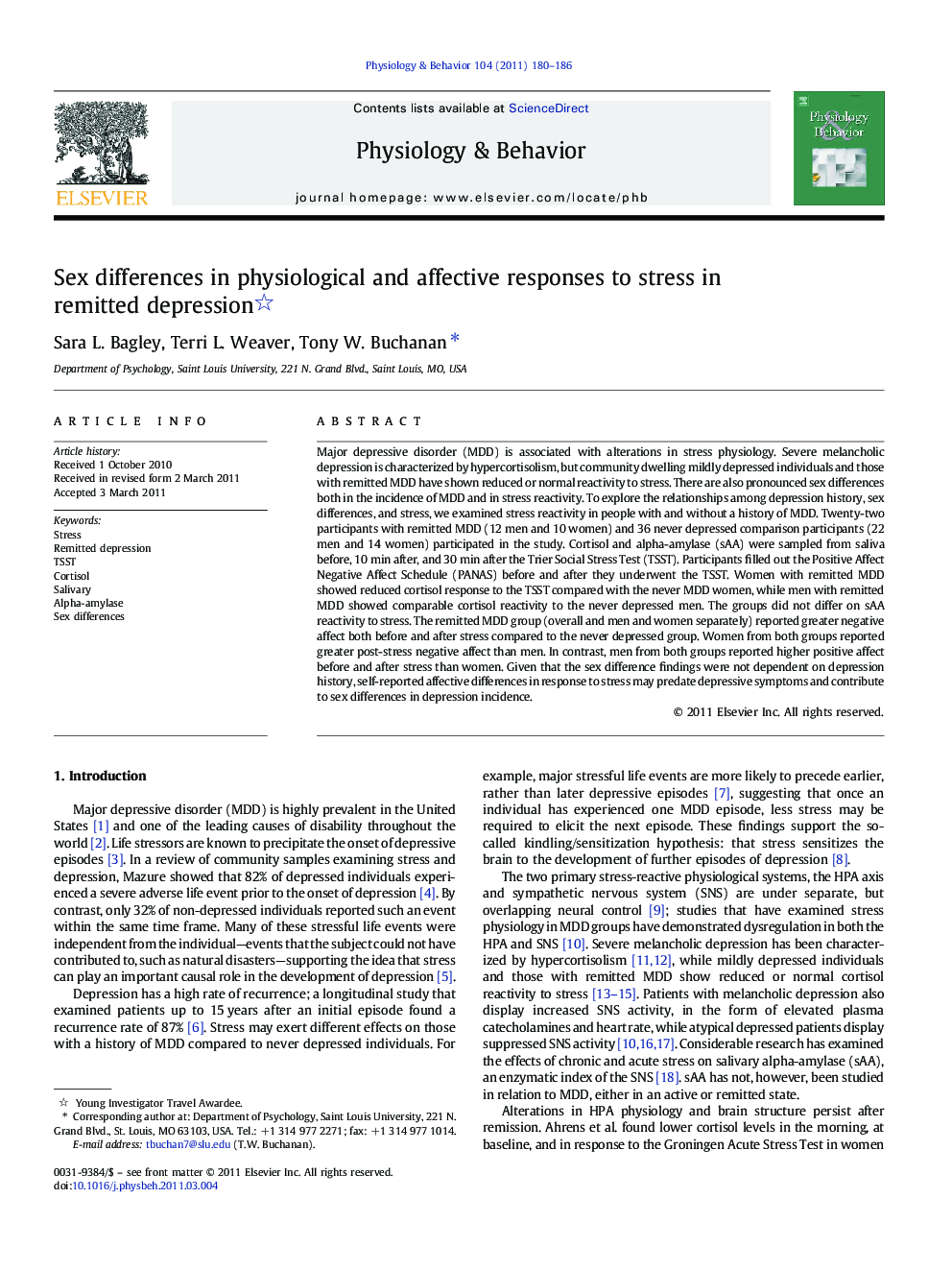| Article ID | Journal | Published Year | Pages | File Type |
|---|---|---|---|---|
| 2844539 | Physiology & Behavior | 2011 | 7 Pages |
Major depressive disorder (MDD) is associated with alterations in stress physiology. Severe melancholic depression is characterized by hypercortisolism, but community dwelling mildly depressed individuals and those with remitted MDD have shown reduced or normal reactivity to stress. There are also pronounced sex differences both in the incidence of MDD and in stress reactivity. To explore the relationships among depression history, sex differences, and stress, we examined stress reactivity in people with and without a history of MDD. Twenty-two participants with remitted MDD (12 men and 10 women) and 36 never depressed comparison participants (22 men and 14 women) participated in the study. Cortisol and alpha-amylase (sAA) were sampled from saliva before, 10 min after, and 30 min after the Trier Social Stress Test (TSST). Participants filled out the Positive Affect Negative Affect Schedule (PANAS) before and after they underwent the TSST. Women with remitted MDD showed reduced cortisol response to the TSST compared with the never MDD women, while men with remitted MDD showed comparable cortisol reactivity to the never depressed men. The groups did not differ on sAA reactivity to stress. The remitted MDD group (overall and men and women separately) reported greater negative affect both before and after stress compared to the never depressed group. Women from both groups reported greater post-stress negative affect than men. In contrast, men from both groups reported higher positive affect before and after stress than women. Given that the sex difference findings were not dependent on depression history, self-reported affective differences in response to stress may predate depressive symptoms and contribute to sex differences in depression incidence.
Research highlights► Women with remitted MDD show a reduced cortisol response to stress compared to never depressed women while men with remitted MDD show comparable cortisol responses to never depressed men. ► Salivary alpha-amylase reactivity, an index of sympathetic nervous system activity, did not differ based on MDD history or sex. ► Both men and women with remitted MDD report more negative affect compared to never depressed comparison participants. ► Women (both remitted MDD and never depressed) reported greater negative affect in response to stress compared to men while men reported greater positive affect than women throughout the testing.
